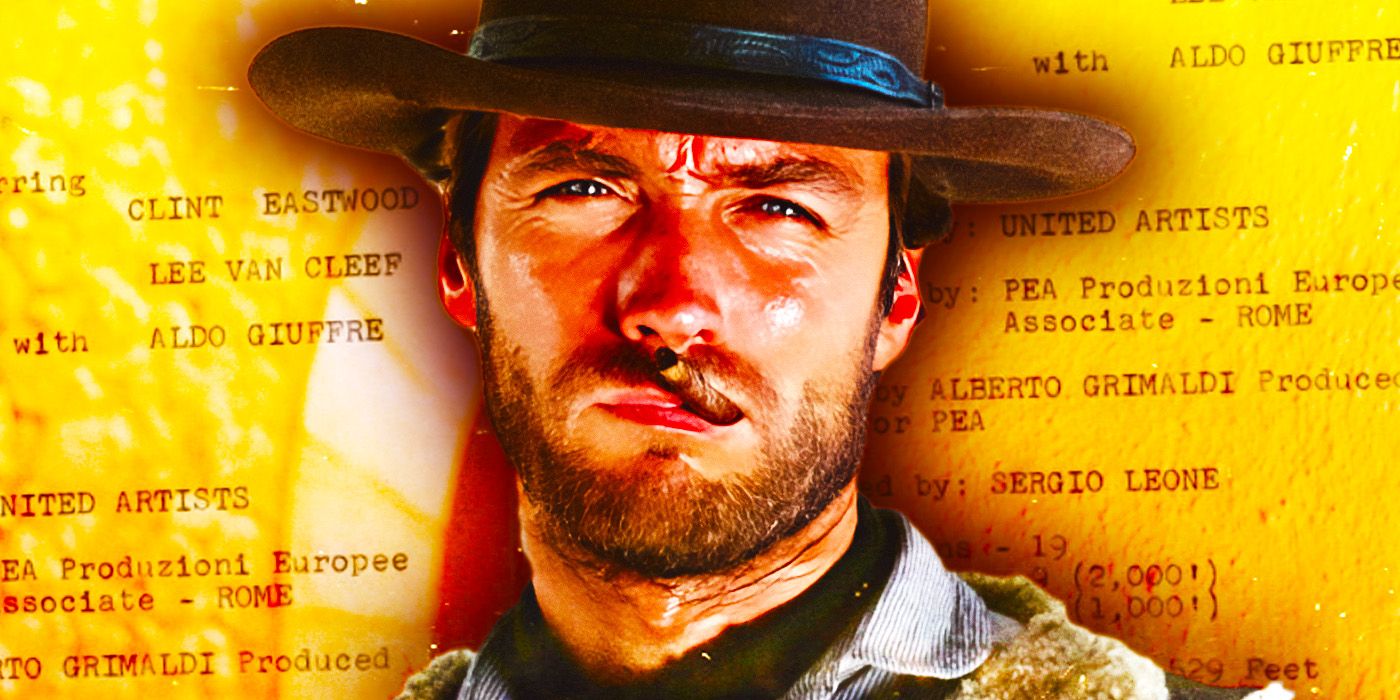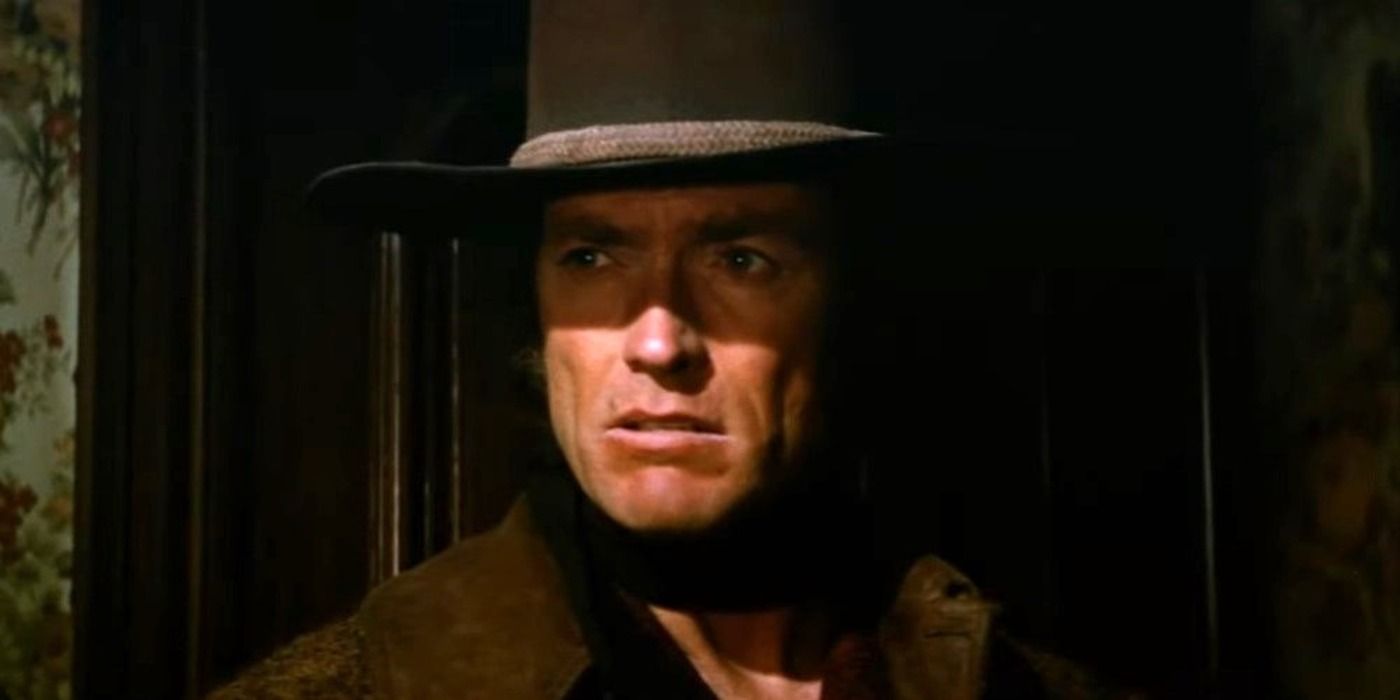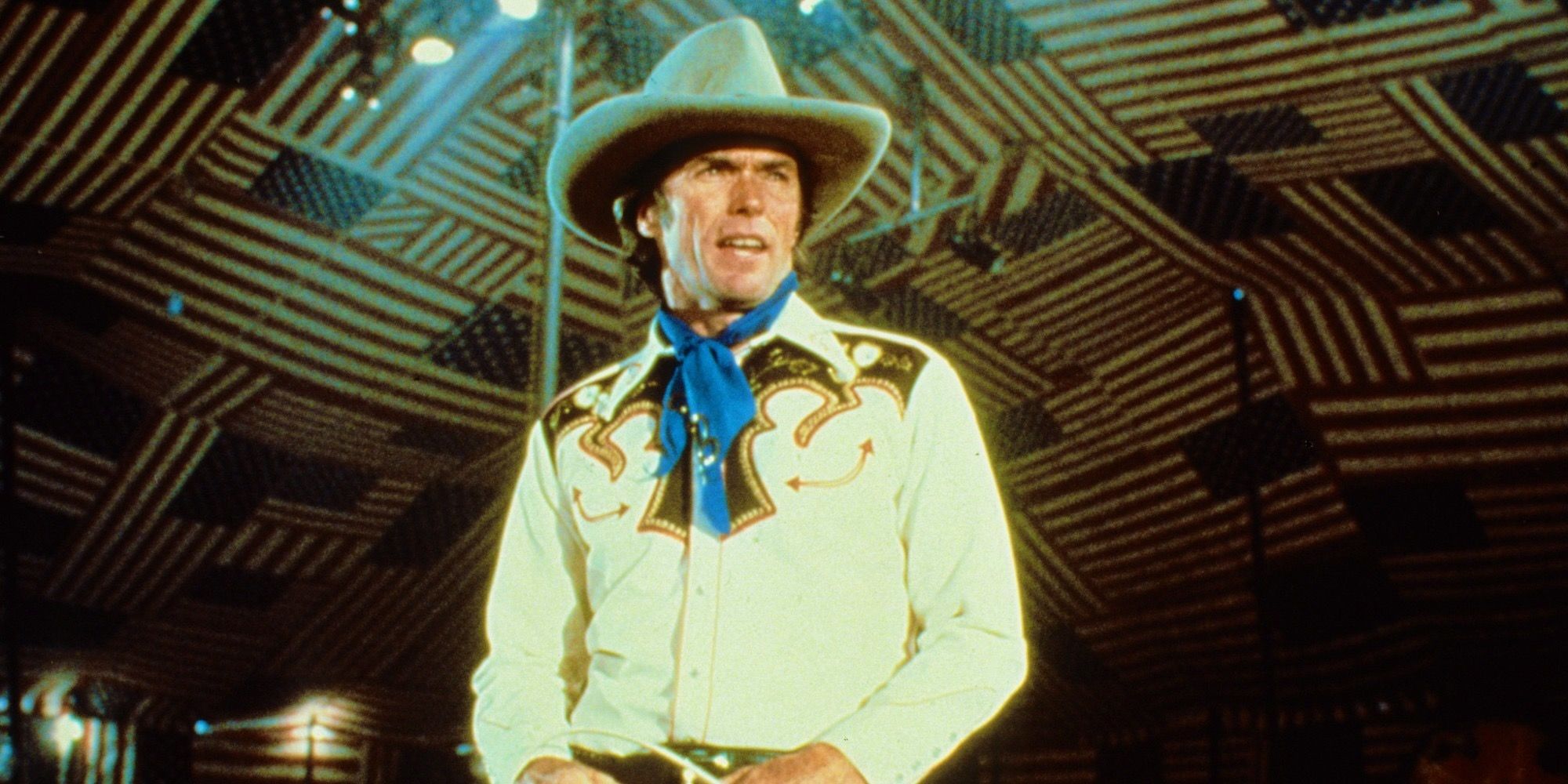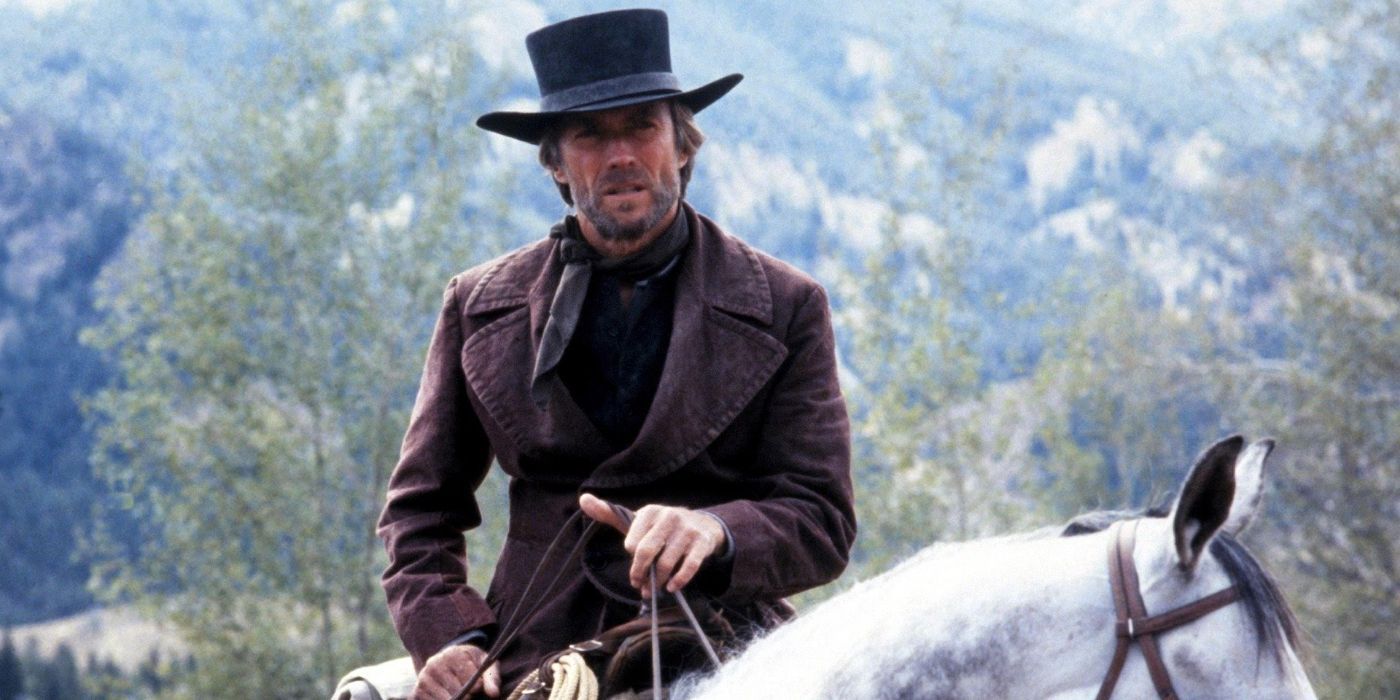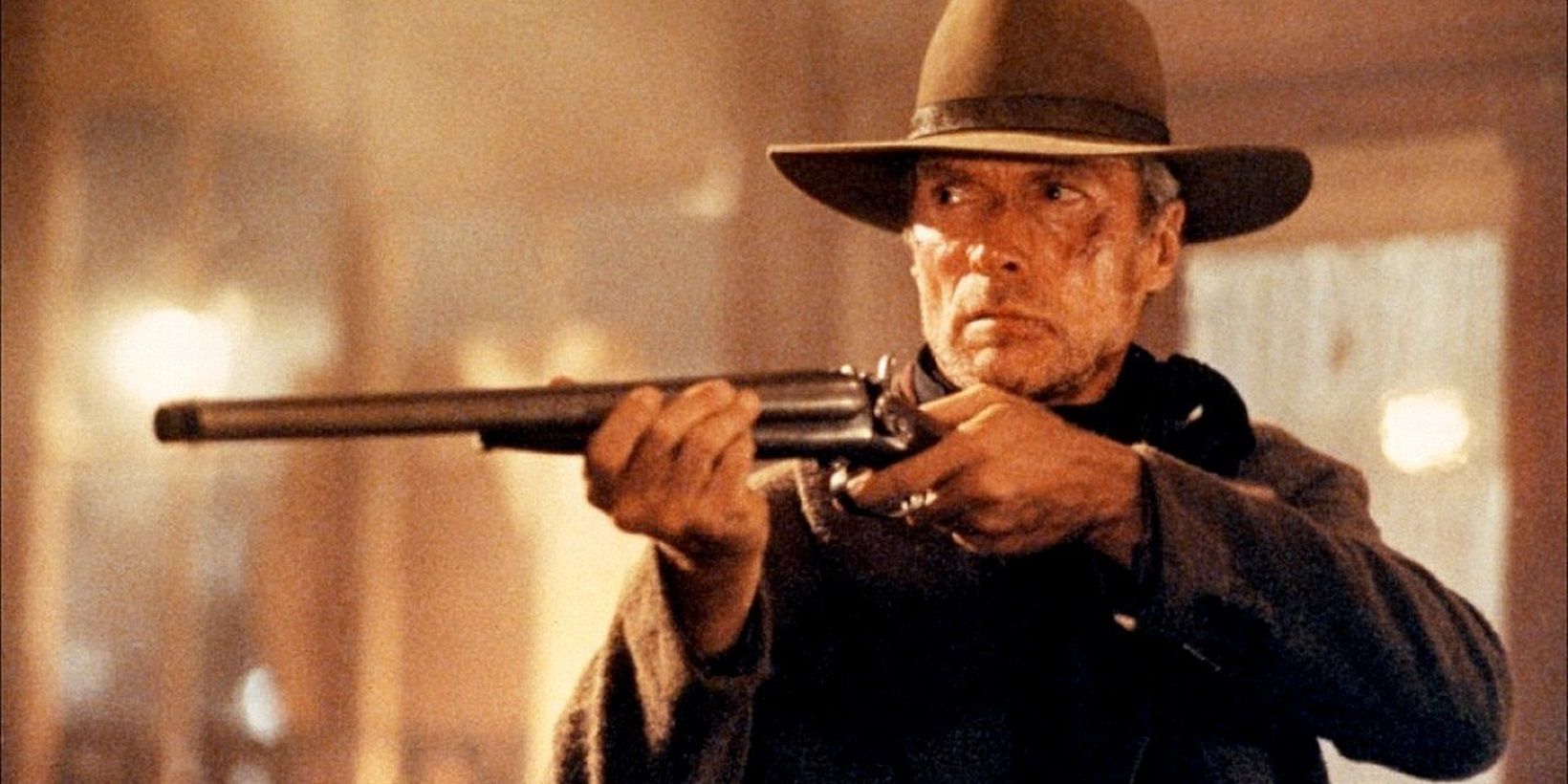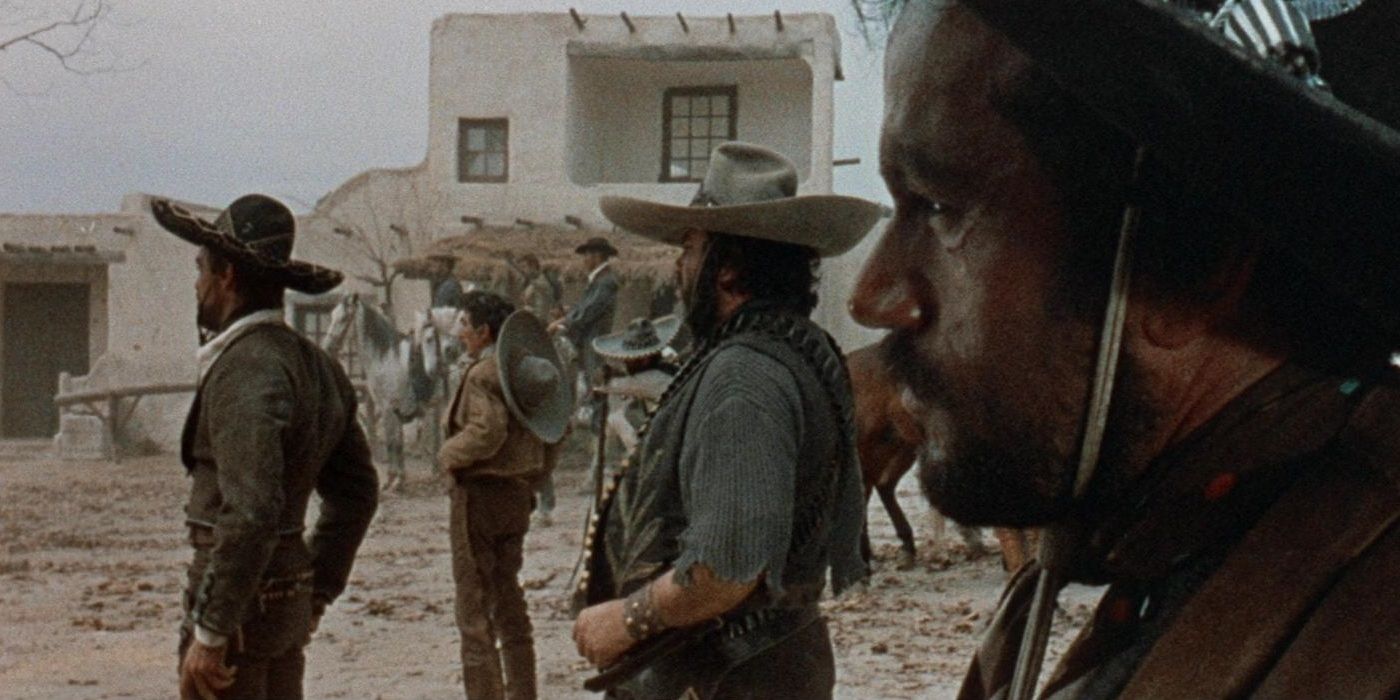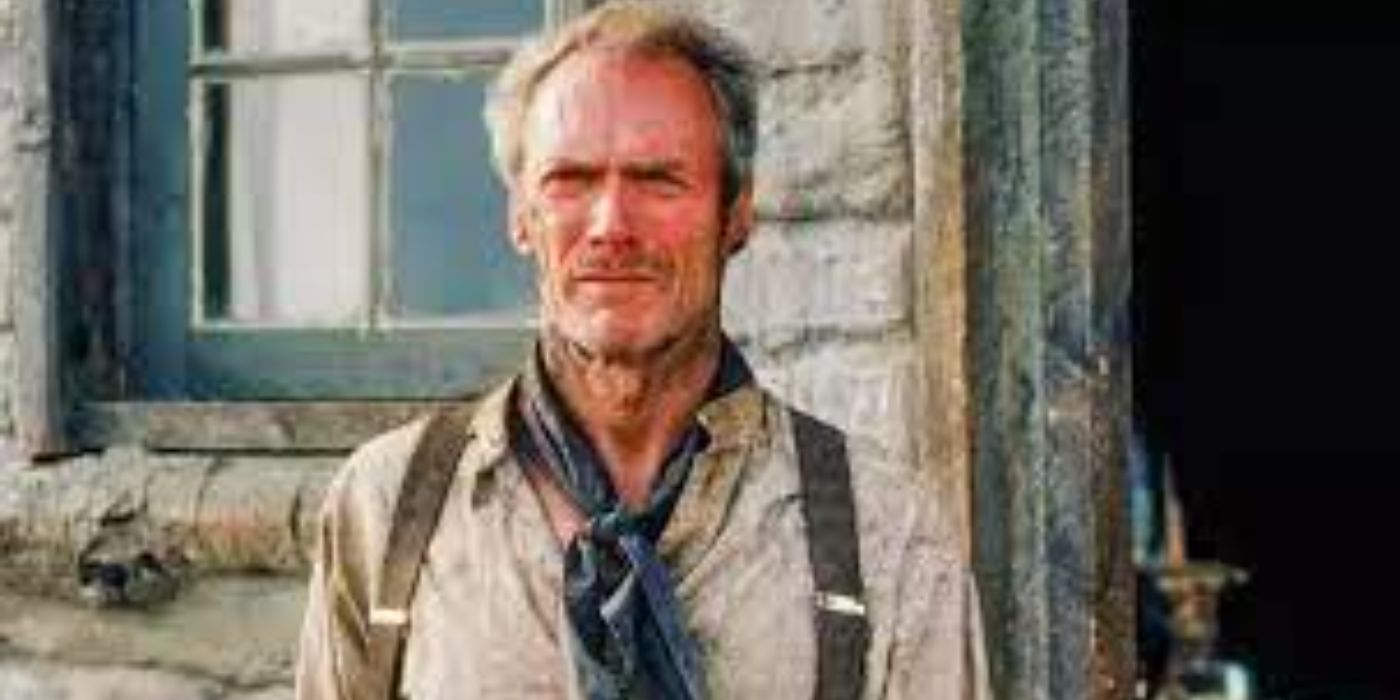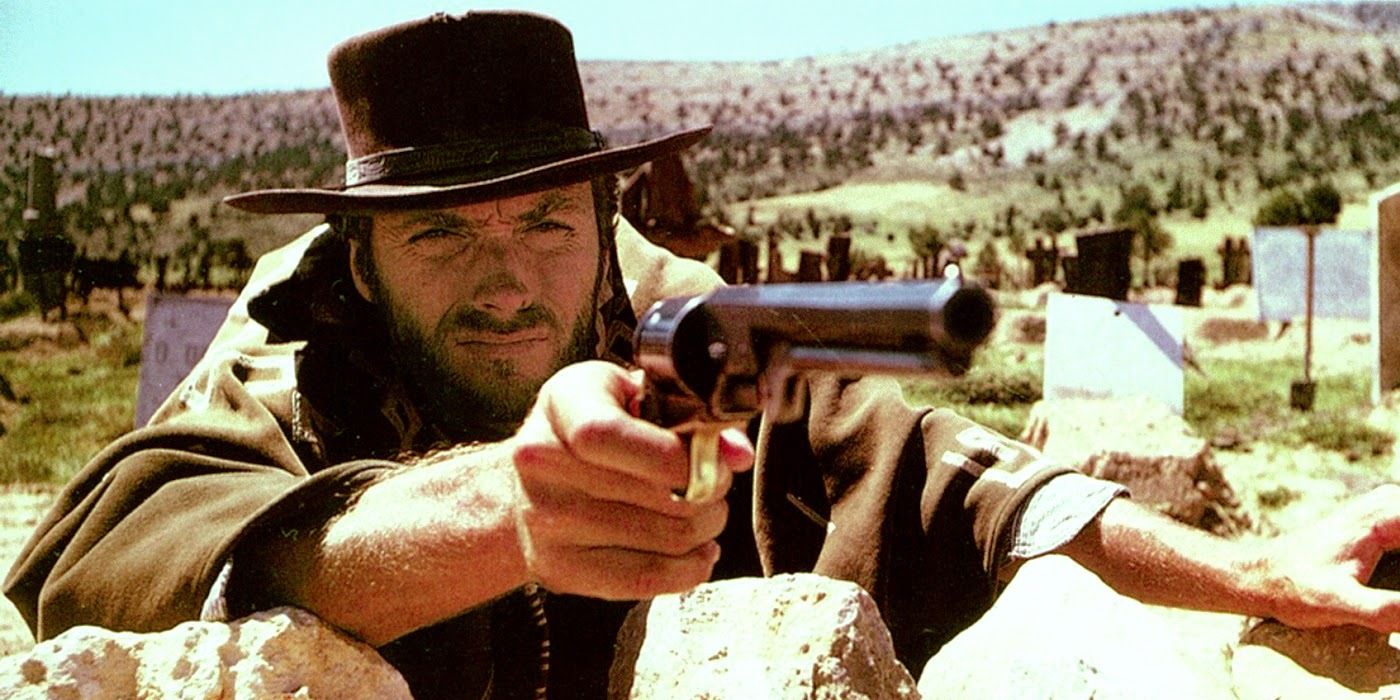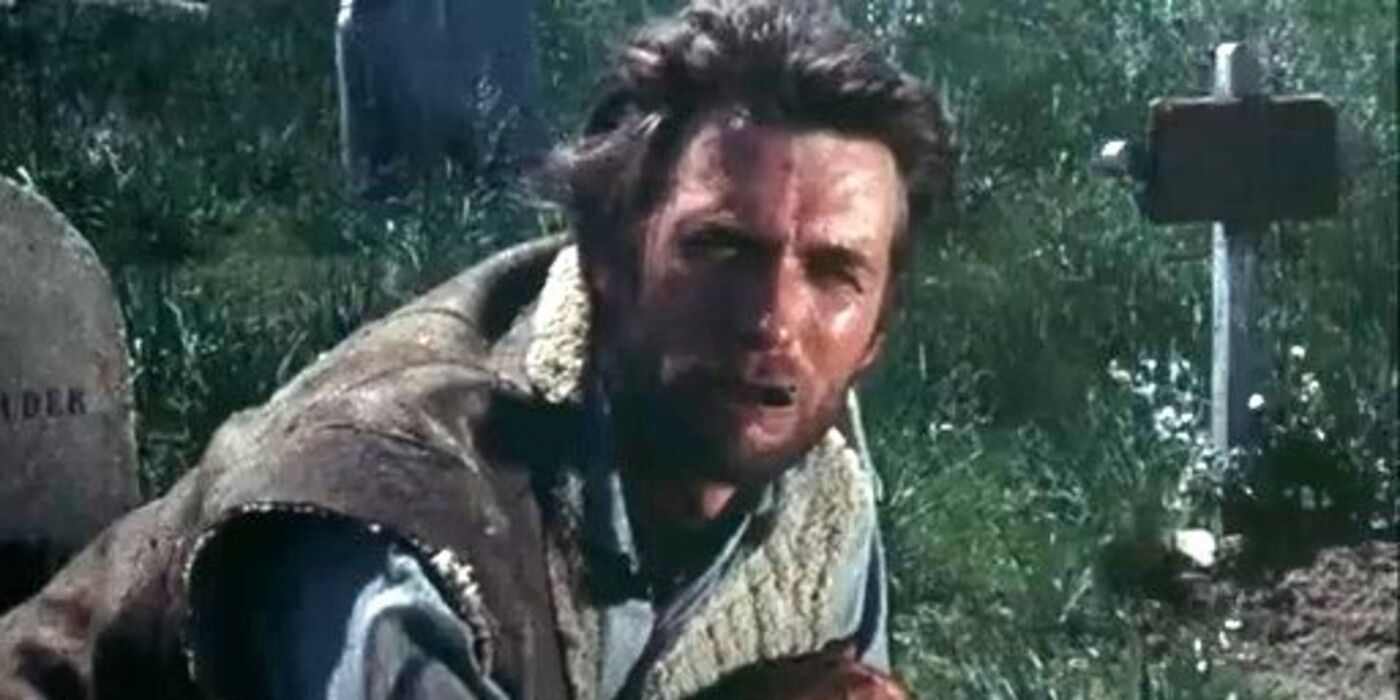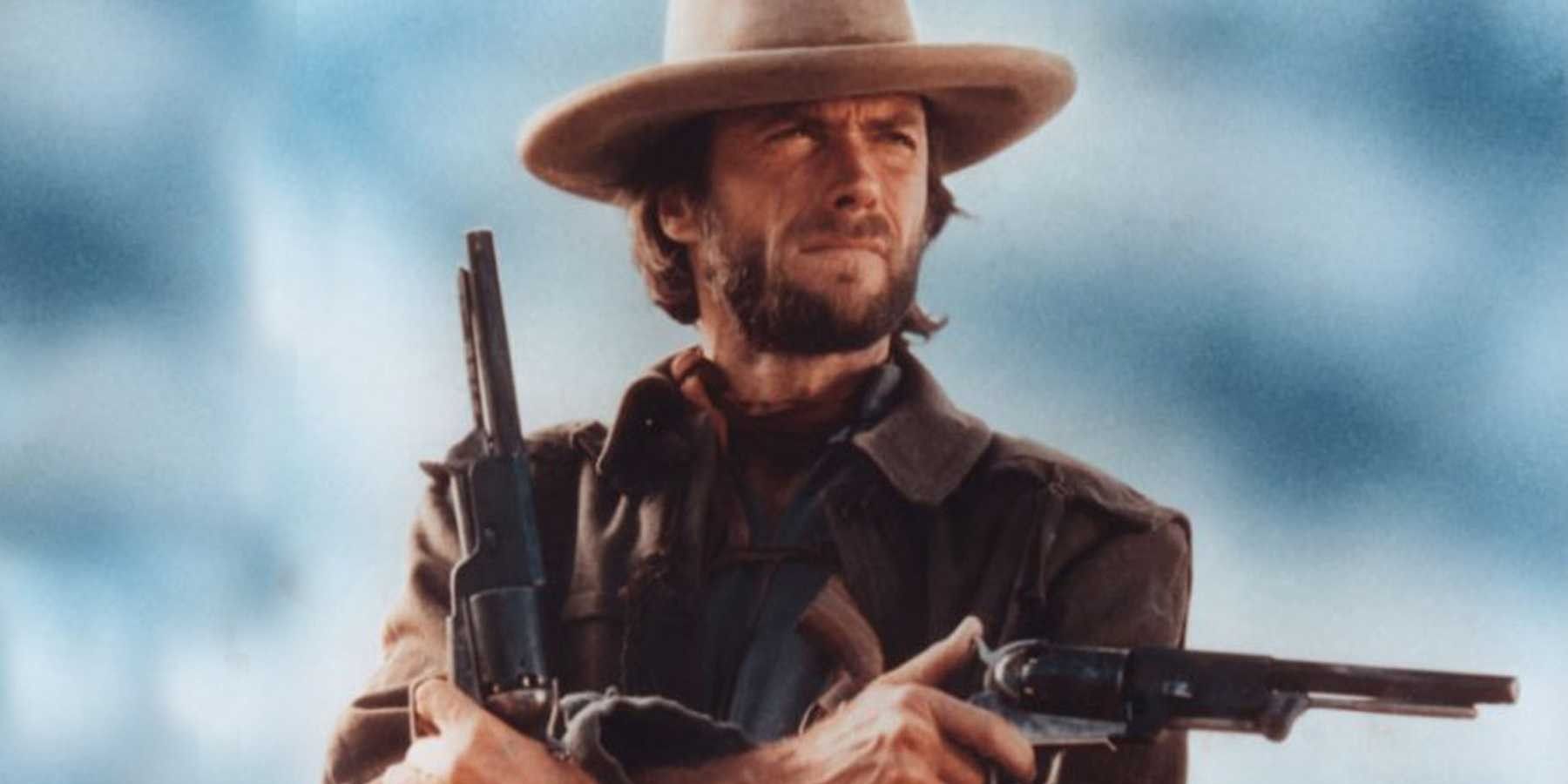Summary
- Eastwood delivers iconic quotes that range from intimidating threats to thoughtful insights, showcasing his range as an actor in Westerns.
- The depth in Eastwood's characters adds richness to his line deliveries, highlighting the complexities of the Wild West outlaws he portrays.
- Eastwood's memorable lines in Western movies will go down in cinema history due to their impact on the characters and the overarching themes of the films.
The Western movies of Clint Eastwood are packed full of iconic film quotes. As the definitive embodiment of a lone-man outlaw bandit, Eastwood is forever associated with Westerns and the Wild West as Eastwood can deliver an epic movie quote like no other. Characters such as The Man With No Name in Sergio Leone’s Dollars Trilogy have spoken some of cinema’s most iconic phrases and have solidified Eastwood’s reputation as one of the most important actors of the past seven decades of filmmaking.
Eastwood’s best Western movie quotes are as iconic as they are varied, consisting of serious threats by sinister outlaws, hilarious quips by brooding bandits, and words of wisdom from aging desperados. Having played troubled criminals with tragic backstories like in The Outlaw Josey Wales, as well as retired bounty hunters coming back for one last job such as in Unforgiven, Eastwood delivers a committed performance and adds something unique to his line deliveries. Eastwood perfected the role of a loner outlaw in Westerns and Eastwood’s quotes will go down in cinema history as some of the best uttered on screen.
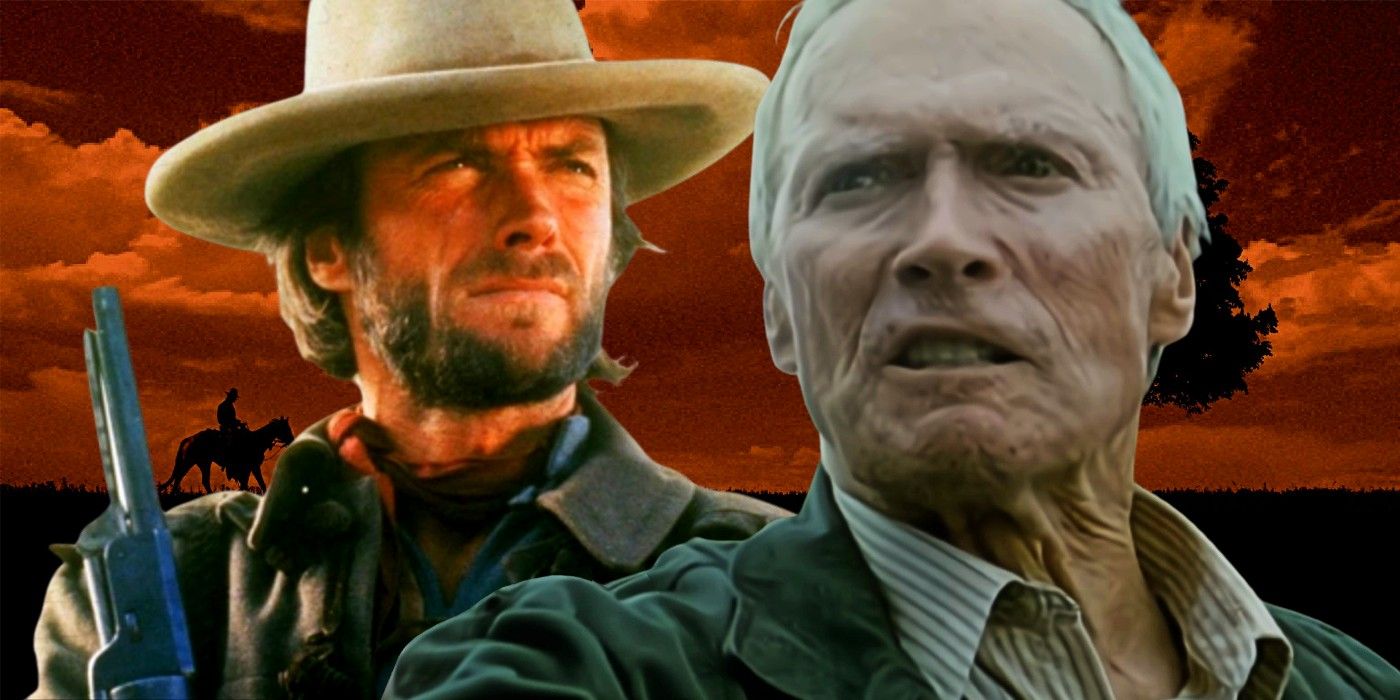
Clint Eastwood's 10 Best Movies, Ranked
Clint Eastwood is one of Hollywood's most iconic filmmakers and movie stars. In nearly 70 years of working on films, here are his best.20 “I Got A Dollar Here Says I Can Break Your Neck 'for You Get That Rig Moved A Half Inch.”
Joe Kidd (1972)
Eastwood does some of his best intimidating here.
Clint Eastwood’s characters don’t typically have to say much to appear intimidating in any of his Westerns, but that doesn’t mean that many of them don’t have some pretty threatening lines. This is one from the movie Joe Kidd. Eastwood plays the titular character, a former bounty hunter who ends up in the middle of a land dispute between the owner and the less fortunate peasants occupying the area. It’s a relatively typical Western, but Eastwood does some of his best intimidating here.
Eastwood’s Kidd says this particular line after being threatened with a gun by another character. Kidd is so secure in his own skills and understands his opponent well enough to know that the other man wouldn’t even be able to get a shot off before he moved. That confidence is typical of the characters Eastwood goes on to play after.
19 “Go Ahead, Let The Tears Fall In The Beer… There's Nothing Wrong With Cryin'.”
Bronco Billy (1980)
If there’s one thing that most Westerns have in common, it’s that the outlaws, the lawmen, the bandits, and the bounty hunters are not allowed to be vulnerable. They can be unhinged and angry, or steady and self-assured, they can even be silent as long as they’re a perfect shot. They are not, however, supposed to show their softer side. That makes this line from Bronco Billy something of an anomaly.
Of course, Bronco Billy is also something of an anomaly as Eastwood plays a man who runs a Wild West show as interest in it is waning rather than his usual gunslinger. It’s refreshing, however, to hear him tell another character that it’s okay to cry. It’s a brief moment in the movie that allows the cowboys to wallow in their circumstances instead of simply hopping on a horse and finding a problem to fix.
18 “Well, It Really Doesn't Matter, Does It?”
Pale Rider (1985)
Pale Rider (1985)
- Director
- Clint Eastwood
- Release Date
- June 28, 1985
- Cast
- Clint Eastwood , Michael Moriarty , Carrie Snodgress , Chris Penn , Sydney Penny , Richard Dysart , Richard Kiel , Doug McGrath , John Russell
- Runtime
- 115 minutes
Pale Rider is unique among Eastwood’s Westerns because there’s a supernatural element to the movie. It’s implied repeatedly that Eastwood’s character is either a ghost or an angel. It’s never directly spelled out for the audience, but the script remains cryptic right up until the end as to just who Eastwood’s character really is.
That’s why this seemingly innocuous line is one of the best from Eastwood’s Westerns. Out of context, the line could be about anything. In reality, it’s the character’s response to the question of who he is. Because, in the end, it doesn’t matter who the Preacher really is. His past isn’t important. Instead, what’s important is that he’s there to help. The Preacher’s mission is to make sure the less fortunate aren’t taken advantage of by someone in a position of power, and that’s all anyone needs to know about him.
17 "When A Man's Got Money In His Pocket, He Begins To Appreciate Peace."
A Fistful Of Dollars (1964)
A Fistful of Dollars
- Release Date
- January 18, 1964
- Director
- Sergio Leone , Monte Hellman
- Cast
- Clint Eastwood , Marianne Koch , Gian Maria Volonte , Wolfgang Lukschy , Sieghardt Rupp , Joseph Egger
- Runtime
- 99minutes
As the first film in Sergio Leone’s Dollars Trilogy, A Fist Full of Dollars is the film that introduced Clint Eastwood’s iconic character of The Man With No Name to the world. This legendary movie quote about the peace a man feels when he knows he has some money highlights the uncertain nature of life in the Wild West. While some Westerns would like the audience to believe that the bad guys always wear black hats and the good guys never break the law, that isn't the case. It usually comes down to dire financial straits for the characters.
When a bandit is doing well financially, they have no reason to go out looking for trouble and start to enjoy the quiet and calm. They might even be law abiding during those times. However, when money is tight, life is not as peaceful, and outlaws like The Man With No Name find themselves in the midst of conflict.
16 "We All Have It Coming, Kid."
Unforgiven (1992)
Unforgiven (1992)
- Director
- Clint Eastwood
- Release Date
- August 7, 1992
- Cast
- Clint Eastwood , Gene Hackman , Morgan Freeman , Richard Harris , Jaimz Woolvett , Saul Rubinek , Frances Fisher
- Runtime
- 130 Mins
While the Western movies of Clint Eastwood are full of insightful quotes about the nature of life and death, this assertion that “we all have it coming” from Eastwood as William Munny feels like it is being spoken from a life of experience. There's something world-weary about the line delivery as Eastwood plays a man who has seen and done his fair share of things he could end up punished for.
Unlike his earlier Western films, Eastwood was already in his 60s when Unforgiven was made, and quotes like this take on an extra layer of significance due to wisdom and life experience that can be felt from his aging character. It wasn't much longer after this movie that Eastwood made his preference for being behind the camera instead of in front of it known as well.
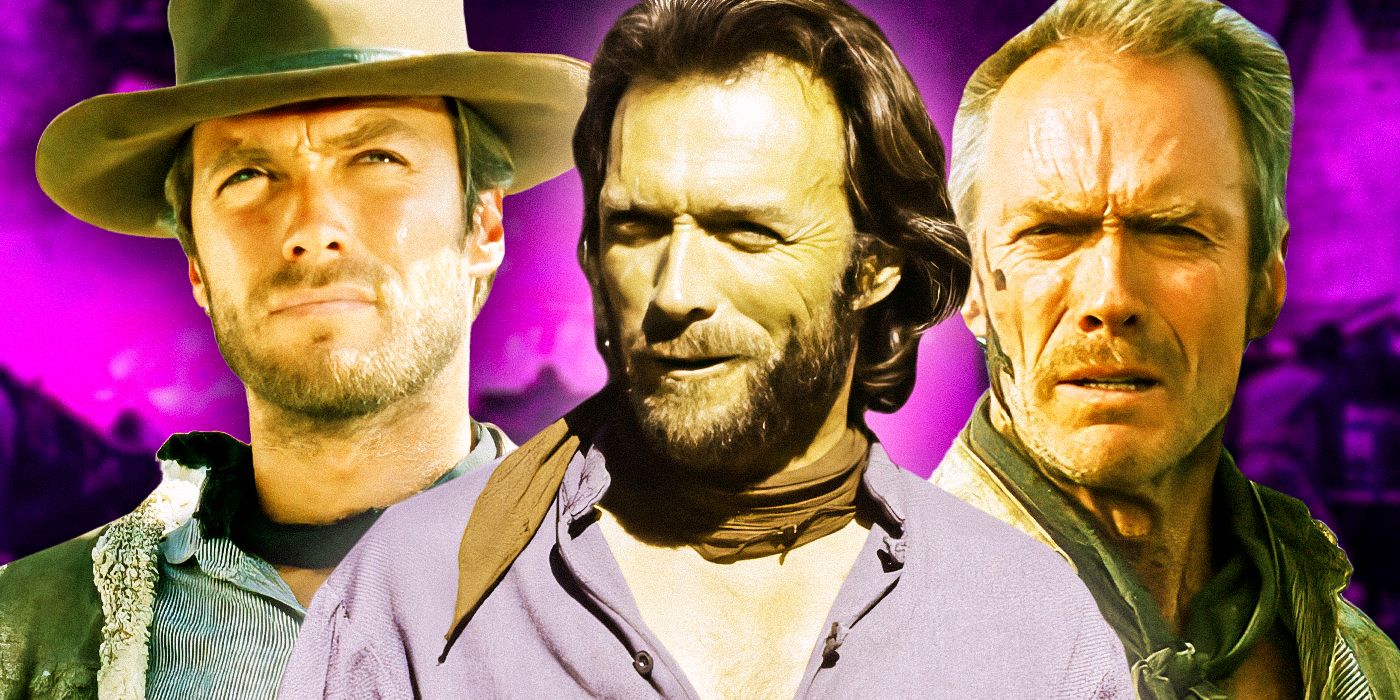
All 9 Western Gunslingers Played By Clint Eastwood, Ranked By Deadliness
Western movie legend Clint Eastwood has played countless deadly Western gunslingers, all of whom were fearsome foes for outlaws in the Wild West.15 "You See, My Mule Don’t Like People Laughing. He Gets This Crazy Idea You’re Laughing At Him.”
A Fistful Of Dollars (1964)
During an epic showdown in A Fistful of Dollars that would see The Man With No Name expertly kill four bandits in the blink of an eye, Clint Eastwood’s character jokingly gives the men time to apologize for laughing, not at him, but at his mule. Eastwood’s deadpan delivery and threatening nature make this quote as sinister as it is hilarious. That's become a hallmark of Westerns in large part to the very characters that Eastwood played so often.
The humor in this scene quickly turns to action when the bandits realize they’re not going to make it out of this confrontation alive. Before the bandits have time to even draw their guns, The Man With No Name quickly shoots and they’re all dead. It's not the only scene like this in an Eastwood movie, but one of the best examples of his dry humor balanced with the quick action of a scene.
14 "Alive Or Dead? It's Your Choice."
For A Few Dollars More (1965)
For A Few Dollars More (1965)
- Director
- Sergio Leone
- Release Date
- May 10, 1967
- Cast
- Clint Eastwood , Lee Van Cleef , Gian Maria Volonte , Mario Brega , Luigi Pistilli , Klaus Kinski , Aldo Sambrell , Benito Stefanelli , Lorenzo Robledo
- Runtime
- 132 minutes
As the second film in Sergio Leone’s Dollars Trilogy, In For A Few Dollars More audiences were already aware of Clint Eastwood’s The Man With No Name and his iconic portrayal of the outlaw bounty hunter. As Eastwood’s character fights to take Baby "Red" Cavanagh in for a $2,000 bounty, he tells him: “Alive or dead? It’s your choice.”
The Man With No Name’s no-nonsense attitude and single-minded approach to achieving his goals make him a fearsome and difficult foe for any rival bandits, who would be wise to take his offer, give themselves up, and come out of the confrontation at least alive. Again, this kind of exchange between a bounty hunter and a criminal isn't uncommon in Westerns, but it's Eastwood's delivery of the line, as someone all business, that helped to make it popular.
13 "It's A Hell Of A Thing, Killin' A Man."
Unforgiven (1992)
In a heart-to-heart between Clint Eastwood’s character of William Munny and Jaimz Woolvett as The Schofield Kid in Unforgiven, The Kid becomes emotional from having shot and killed several men. The aging killer Munny implies past days when he was young and innocent when he tells The Kid that “it’s a hell of a thing, killin’ a man.”
Over the years Munny has likely killed countless people throughout the violent past of his outlaw days, and there is a sadness in Eastwood's delivery of this line that implies a sense of regret about his past actions. It's a contrast to other Westerns, or even other modern action movies, that would like to allow the audience to suspend any kind of realism and remove the weight of the person's actions. Instead, Eastwood's line makes it clear that taking a life weighs on someone, whether they're the good guy or the bad guy.
12 "Every Gun Makes Its Own Tune."
The Good, The Bad, And The Ugly (1966)
The Good the Bad and the Ugly
- Release Date
- December 29, 1967
- Director
- Sergio Leone
- Cast
- Aldo Giuffrè , Eli Wallach , Clint Eastwood , Lee Van Cleef , Luigi Pistilli
- Runtime
- 178 minutes
In The Good, the Bad and the Ugly, Blondie states that “every gun makes its own tune,” which highlights the unique and individual nature of every firearm. While it is true no two guns are identical, this iconic quote also highlights that every gun has a story to tell, especially in the Wild West when bandits like Blondie have faced countless foes and shot at many different enemies.
It's a reminder that for every story being told in a Western, the characters are built with rich backstories and lives that precede what the audience is seeing in the movie. The gun an outlaw is using in the movie has just as much history as the character the audience loves so much. Of course, it's also a reminder that the gun's "tune" can also change depending on who is playing the song. Is it a bandit or a lawman? The songs would be very different.
11 “The Dead Can Be Very Useful Sometimes.”
A Fistful of Dollars (1964)
In A Fistful of Dollars, The Man With No Name carefully places the bodies of dead soldiers by a grave in a plan to stir up conflict between two rival families. Eastwood’s character states that the dead can often be very useful and highlights that the deceased have “helped me out of tough spots more than once” as they don’t talk and if done right, they can be made to look alive.
This quote showcases the cunning nature of Eastwood’s The Man With No Name and how he always thinks outside of the box and bends situations to his favor. In his line of work, that kind of creative thinking can certainly pay off. Part of the appeal of Westerns is that the stories are very straightforward with a clearcut hero and villain, but moments of creativity like this help the movie stand out.
10 "Dying Ain't Much Of A Living, Boy."
The Outlaw Josey Wales (1976)
The 1976 revisionist Western movie The Outlaw Josey Wales was directed by Clint Eastwood. Eastwood also appeared in front of the camera, starring as the titular bandit. Set at the end of the Civil War, the film tells the story of a Missouri farmer and Confederate guerrilla who ends up on the run from Union soldiers who murdered his entire family.
In the line “dying ain’t much of a living, boy,” Josey Wales highlights the uncertain nature of life as an outlaw, trying to dissuade someone else from the same line of work. But to keep afloat, he is forced to persevere. While Josey’s life is one spent always on the move, the alternative is just to give up and die. Giving up isn't exactly in his nature, as is true for most of the characters Eastwood plays in Western movies.

